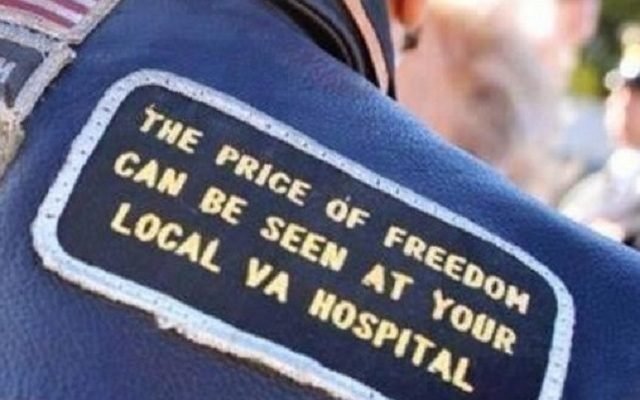
A 76-year-old military veteran killed himself outside a Long Island Veteran Affairs facility Sunday after being denied treatment. He was reportedly seeking help for mental health issues at the Northport Veterans Affairs Medical Center but was turned away, an unfortunately common experience plaguing veterans seeking healthcare in recent years.
According to the New York Times, two people connected to the hospital spoke about the incident on the condition of anonymity. They explained “he had been frustrated that he was unable to see an emergency-room physician for reasons related to his mental health,” the Times reported.
“He went to the E.R. and was denied service,” one anonymous source said. “And then he went to his car and shot himself.”
Peter A. Kaisen of Islip, New York, committed suicide in the parking lot of the Northport facility, where he had been a patient. He was in the parking lot outside Building 92, the facility’s nursing home, when he shot himself.
One of the Times’ anonymous sources questioned why Kaisen had not been referred to Building 64, the mental health center at Northport.
“The staff member said that while there was normally no psychologist at the ready in the E.R., one was always on call, and that the mental health building was open ‘24/7,’” the Times reported.
“Someone dropped the ball. They should not have turned him away,” the source said.
Christopher Goodman, a spokesman for the hospital, said there “was no indication that he presented to the E.R. prior to the incident,” and the Times was unable to determine whether there was an official record of his visit to the VA on Sunday.
The Northport center has faced heightened scrutiny since the Times reported on mismanagement at the facility in 2014, but the problems at Northport are problems of the entire system.
Just last month, an Iowa military veteran suffering from PTSD and substance abuse killed himself after being denied treatment by the VA. He reportedly made an appointment seeking treatment but eventually posted on social media that he was turned away “even though he requested it and explained to a doctor that he felt his safety and health were in jeopardy,”KWQC, a local news outlet reported.
One veteran who drove to a Seattle VA last year with a broken foot was denied assistance walking from his car to the hospital entrance, a distance of a few feet. He was told to call 911, instead. One gun-wielding veteran with PTSD was shot and killed by police in Maricopa County, Arizona, last year after he was turned away from the VA hospital when he sought treatment for a mental health emergency. He had routinely called suicide hotlines for help but never received the full attention he needed.
Veteran suicides in the United States are a chronic problem. Though some argue the relatively recent figure from the VA that 22 veterans kill themselves per day is inflated, veterans still face a suicide risk higher than the rest of the American population. As USA Today has noted:
“In 2014, veterans accounted for 18% of all suicides in the United States, but made up only 8.5% of the population. In 2010, veterans accounted for 22% of U.S. suicides and 9.7% of the population.”
Further, a more recent analysis by the VA found that in 2014, 20 veterans killed themselves per day. Politifact, an independent fact-checker, has confirmed this figure. While rates of veteran suicides appear to be declining, the figures are still troubling.
Even absent mental health issues like depression and PTSD, veterans are dying waiting for regular health care. A VA whistleblower revealed last year that 238,000 out of 847,000 veterans died after submitting requests for treatment they never received. An audit in 2014 found 57,000 veterans were waiting more than 90 days for an appointment with the VA.
The United States government, politicians, and the media often express compassion and gratitude for veterans. To their credit, some lawmakers recently attempted to allow veterans to use cannabis as an alternative treatment in an amendment to a budget bill — a move Congress ultimately blocked.
But in spite of failed and often unwieldy efforts to reform veterans’ health care, the VA’s systemic failures continue to leave veterans feeling ignored and abandoned by the very institutions that still claim to value them.
